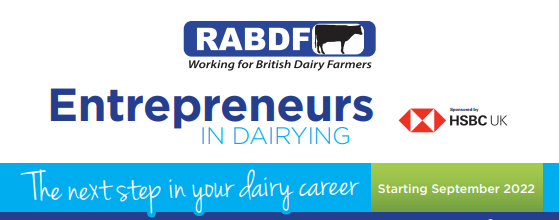The UK's top regenerative farming event for livestock producers is back with two events next year, following unprecedented demand from the inaugural 2022 event held this summer.
A high input, high output dairy farm in Somerset and an organic and certified pasture-fed dairy farm in Cumbria will host the Down to Earth events in summer 2023.
On Wednesday, 21st June, Neil Baker will open his gates at Haselbury Plucknett, for visitors to see his high-yielding indoor herd of 1,800 predominately Holstein cows in action.
Cows are milked three times a day, producing 55,000l of milk. Neil farms 3,200 acres of owned, rented and contract-farmed land.
He is one of Arla's regenerative pilot farms and says for him, regenerative farming encompasses much more than simply focussing on the soil. Whilst he admits soils are a big area, he prefers using the word 'circular farming' over the regenerative farming phrase.
As part of the pilot project, he will be looking to grow maize without any chemical inputs, as well as understanding the economic side by calculating carbon emissions from 'ghost acres'.
Neil uses digestate from an AD plant on his farm on the crops he grows, including wheat, barley, peas and grass. He also has begun establishing important pollinator corridors, which provide a barrier for wildlife.
Neil says: "Regenerative farming means more than just selling the plough. It's thinking about the whole farm, as well as the staff and the community. They are all part of circular farming.”
Then, on Thursday, 6th July, Mark and Jenny Lee, Park House Farm, Torpenhow, will showcase their organic unit. Their farm consists of 175 milking crossbred cows, certified 100% pasture fed by Pasture for Life and mob-grazed on a 30-40 day rotation using 2.5km of grazing tracks.
Half of their milk goes into the farm's cheese-making business and the rest is sold to First Milk. They are also pioneering selling liquid milk directly to local cafes and farm shops using an innovative plastic saving system, Freshkeg They aim to achieve their milk's true value, proofing their farm for the future.
The Lee's lightbulb moment came when their cows actively sought out an area of a field to graze that had not been sprayed.
Mark says: "Every one of those cows coming into the field headed for the strip of untreated land to graze. Witnessing first hand how our cows actively sought and thrived on a more diverse diet was the very moment we started our journey into organic and committing the land at Park House Farm into regenerative farming."
In 2017 they began their organic conversion. They now have areas of silvopasture for grazing and have incorporated 80 pigs into the rotation, which work in poorly performing fields to help improve them.
Before bird flu restrictions, 1,800-2,000 free-range broiler chickens were also reared a year, helping improve the pasture through their organic muck.
Show organiser RABDF's Managing Director Matt Knight said: "We are excited to be back with two Down to Earth events next year. Both farms have their own unique regenerative farming story to tell and highlight the practices that can be implemented on such contrasting farming systems.
"The demand and buzz witnessed at this year's event highlight the thirst for knowledge. We hope these events will help develop farmers understanding of the principles and how they may benefit their farms."
More information on the event, including speakers and ticket sales, will be available in due course at projectdowntoearth.co.uk


